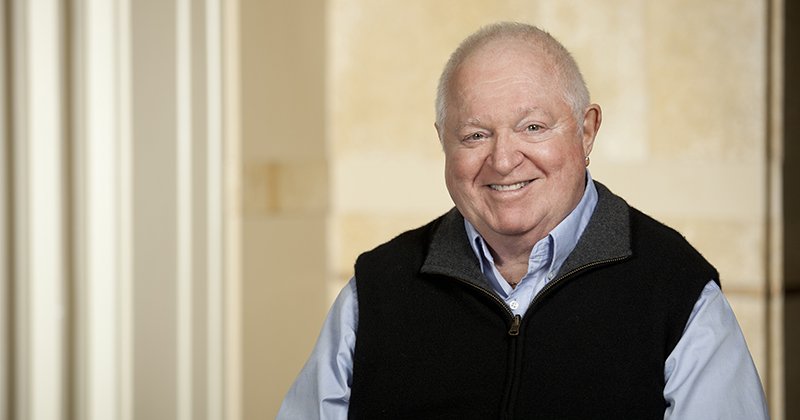Norman M. Garland
Second Century Chair in Law Emeritus

B.S.B.A., Accounting, 1961, and J.D., cum laude, 1964, Northwestern University
LL.M., Trial Advocacy, 1965, and E. Barrett Prettyman Legal Intern Fellow, 1964-65, Georgetown University
Honorary L.L.D., 2016, Southwestern Law School
Order of the Coif
Member, California and Illinois State and District of Columbia Bars
Norman Garland was busy "24/7" as a law student in Chicago—taking classes, serving as an editor of the law review, and making a living as an accountant. Upon graduation, he moved to Washington, D.C. where he tried real cases by day and hypothetical cases by night while earning his LL.M. degree in trial advocacy.
Early in his legal career, as an attorney with the corporate antitrust firm of Howrey & Simon, Professor Garland handled most of the firm's pro bono criminal defense work in addition to civil cases. A few years later, he returned to his alma mater to teach law and serve as Assistant Dean of Admissions. During that time, he also served as general counsel for the Better Government Association (BGA), a local watchdog group, and was often aided by his students in the BGA's undercover investigations of graft and corruption in Chicago government.
"I love the law. But for me, the practice of it is not nearly as rewarding and challenging as teaching it."
Professor Garland was appointed to the Southwestern faculty in 1975. He was named as the Irwin R. Buchalter Professor of Law in 1992, and as the Paul E. Treusch Professor of Law in 2008. He received an honorary doctor of laws degree from Southwestern in 2016. Always interested in methods to improve law teaching, Professor Garland was one of the first law professors in the country to incorporate computer and internet-related resources in the classroom. In 1998, he received the first "TWEN Innovation in Teaching Award" from West Group. A year later, his expertise was recognized by the Center for Computer-Assisted Legal Instruction which awarded him one of five CALI Fellowships to create computer-based learning materials. He has authored seven CALI lessons on Criminal Law and Evidence. In recent years he has adapted his Evidence and Constitutional Criminal Procedure classes to distance learning in hybrid form, meaning the classes are partially online. He served on the faculty of Emory University School of Law's Trial Advocacy Program for several years, and spent a semester there as a visiting professor of law. Professor Garland has also served as an arbitrator for the American Arbitration Association for over two decades.